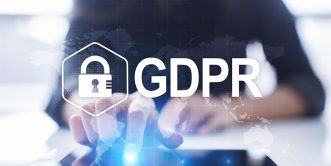-learning is the process of gaining information and knowledge via digital media, rather than it being taught to you in a classroom or lecture theatre. But of course ‘digital’ does not necessarily just mean an online course through the internet; it also includes listening to CDs and watching/interacting with DVDs. E-learning has benefits not just for the individual, but also for the organisation, and all six amazing benefits can start with the word ‘flexibility’.
So what are the amazing benefits of e-learning?
You can do it anywhere at any time
Insert your DVD or CD into your laptop, or log on via Wi-Fi to your tablet or smart phone, whether you are at home, at work or even on the commute, and you can learn.
E-learning is ‘on-demand’ and can be interrupted at any point to deal with another task. This, however, can be a disadvantage because for learning to be retained, research has indicated that it requires at least 20 minutes of concentrated engagement with the content.
One major focus of current e-learning is that of ‘just-in-time learning’. For example, the aircraft engine technician at an airport in a distant country, fixing an engine using information, or following video delivered on their tablet, rather than referring to multiple written manuals.
Most importantly the content within e-learning can be delivered in multiple formats to reinforce each other. In a lecture theatre there is normally a lecturer and a visual presentation. With e-learning there can also be a combination of audio and visual presentation to reinforce the learning of that content. Plus, you can go over the material as many times as you want to or need.
You can do it on, and in, your own time
Most structured education and training courses take place in a physical location at set times. This doesn’t always align with modern working practices where people may have multiple jobs with unpredictable working patterns. However, with an e-learning package, learners can ‘attend’ when it is convenient to them. Learners can also revisit any modules or topics that they may not have fully grasped at first.
You are not ‘bounded’ by college timescales, or limited by the content of college libraries.
If you are undertaking a degree, you are normally expected to complete it within 3 years. With e-learning, you are in control of the timetable for both your learning timetable and when you take the qualification.
E-learning also normally offers a wide range of supporting texts and materials with unlimited access across multiple channels.
Flexibility on price – E-learning is normally cheaper than face to face learning
Conventional learning requires a person, or persons, to deliver the ‘content’ to a group ranging from one to realistically a maximum of fifty people at a time. E-learning can be delivered to potentially many thousands for the same cost. This can be of great benefit to both the individual and the organisation. The individual will not have to spend the time and expense on travel to a venue. The organisation should be able to educate more staff for a lower cost per head.
Flexibility in delivery – For the organisation e-learning can be delivered widely and rapidly.
If your team is 5 strong, you can sit them in a room and have the training delivered quickly and in a controlled environment. If you are a many thousand-person operation working across different continents and potentially in different time-zones, then e-learning is one of the most effective ways of ensuring all personnel are trained/updated in a rapid time-frame, and in a consistent manner.
The content and the programme can be bespoke, for a particular profession, industry or company making it 100% relevant to the staff and the context, for example the UK government has rolled out a single “Prevent” (anti-terrorist) programme on an e-learning platform for all public sector employees.
E-learning includes testing and monitoring.
This is useful not only for the individual learner to track their progress and receive certification, but also for the organisations who need to verify that their employees are knowledgeable enough to undertake their roles. In a regulated environment, such certification may be necessary to ensure that individuals are qualified to undertake their tasks, and the organisation meets its regulatory requirements.














Comments